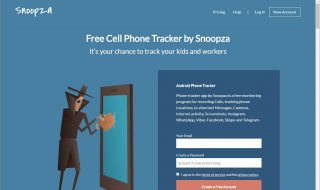
Everyone has to start somewhere. Whilst many employers may specify that they’re only looking for experienced applicants, it’s still possible to show enough potential to make employers think otherwise. Other groundwork is still needed to show that you’re right for the job. Here are just a few ways to get your dream job without experience.
Volunteer
Volunteering is the easiest way to get some experience in your desired field. The downside is that you’re not paid for your efforts. That said, simply having one week’s experience on your CV may be enough to separate you from other unexperienced candidates as it show that you have some understanding of the job environment.
Try to take on as many roles as you can during your voluntary experience. The more new things you can try, the more you can put on your CV that may help when pursuing a full-time job. In some cases, it is possible to turn a voluntary position into a full-time position by showing that you’re a keen and hard worker and potentially a valuable asset to the business. Don’t be afraid to ask the employer if you can possibly be taken on full-time. This shows confidence and a sense of enthusiasm that most employers want to see.
Make use of transferrable skills

Get A Flying Start In Your Tech Career
Jobs that may seem unrelated may have transferrable skills that you can highlight on your application. You may have shown leaderships skills, had to communicate with clients on the phone or had to use certain software. You could consider getting a job that can give you these transferrable skills to then pursue your dream job. For example, if you’ve got your heart set on working in a zoo, working on a farm or in an animal shelter may be enough to show experience with animals. Just make sure to not lose sights on your original goal (unless of course you find a better goal). Use this job as a stepping stone so that you don’t end up stuck on a career path that isn’t for you.
Get educated

Read Book Education School Know Learn Study
All Degrees Aren’t Equal
An education isn’t required for most jobs, but it can help in most cases. Having a degree behind you can open you up to a lot more options, although you should be careful as to what kind of degree you take.
Specific degrees can be great for chasing specific jobs as they show a passion for that subject, whilst more general degrees open up more options and allow more flexibility in the future. If you’re got a degree in a general subject but want to pursue a niche job, it could be worth doing a few workshops or short courses to gain some extra niche qualifications. You can even go a long way by simply reading up on some defense tech news and career articles if this kind of career path is something you might be interested in for example. Simply showing your own interest in an industry or line of work can be a big distinction when it comes to separating yourself from other graduates. If you’ve got a degree in a specific subject and want to shift career to something unrelated, you may benefit from getting a few broader qualifications on top.
There are some business courses that offer business specific skills that could help in many areas. Many people have to learn these skills on the job, so having an educational background in them could give you an advantage against other applicants with no business know-how at all.
Start a blog

You could help to show further enthusiasm and commitment to your field by starting a blog. A blog can be based around any subject that means something to you and can be a means of showing off your passion and knowledge. For example, if you want to get into investment brokering, you could start a finance blog for tips on investing. Meanwhile, if you want to become a chef, you could use a blog to show off some of your own recipes. Your blog may even get enough readers that you can potentially make some money from it through ad revenue.
Those that don’t like writing could choose to start a vlog instead. These are videos most commonly uploaded to sites such as Youtube. You could talk about subjects related to your dream career, gain a following and show intuition that could help to impress an employer. Blogs can help to show written communication skills essential to many jobs, whilst vlogs can show vocal communications skills that are also essential.
Network

5 Acquired Skills That Can Keep You Ahead in Job Hunting
Knowing the right people can also help you to get your foot in the door. If you know an employee who works at a company that you’d love to work at, consider asking them to put a good word in to the employer. If you don’t know anyone who could provide such a favour, it could be worth networking and trying to meet people who can provide a way in. Go to networking events such as trade fairs, conferences and popular hangouts for those kind of people. You can also network online by connecting on sites such as LinkedIn and following on sites like Twitter.
Sometimes you may find useful connections in the most unexpected places. Weddings and birthday parties could contain guests who may possibly be able to help you get into your chosen field. Always try to get the contact details of these people – use whatever networking opportunities you can.
Freelance

March to Your Own Beat: Your Career as a Freelancer Begins Here
You don’t always need an employer. If you feel you’ve got the know-how but no-one is giving you the chance to prove yourself, give freelancing a go. You could start by helping out family or friends and then grow a reputation for yourself by branching out. There are sites online that can help when it comes to finding small freelance jobs. This can be a great way of gaining experience that could later help you to get an employed position.

Alternatively, you may decide to stick at freelancing and eventually create your own business. By hiring advisors, taking other courses, reading books and watching video tutorials online, you may be able to learn the ropes yourself without having to work for somebody else. Just make sure that you are constantly making an effort to learn as this will help you to succeed.





